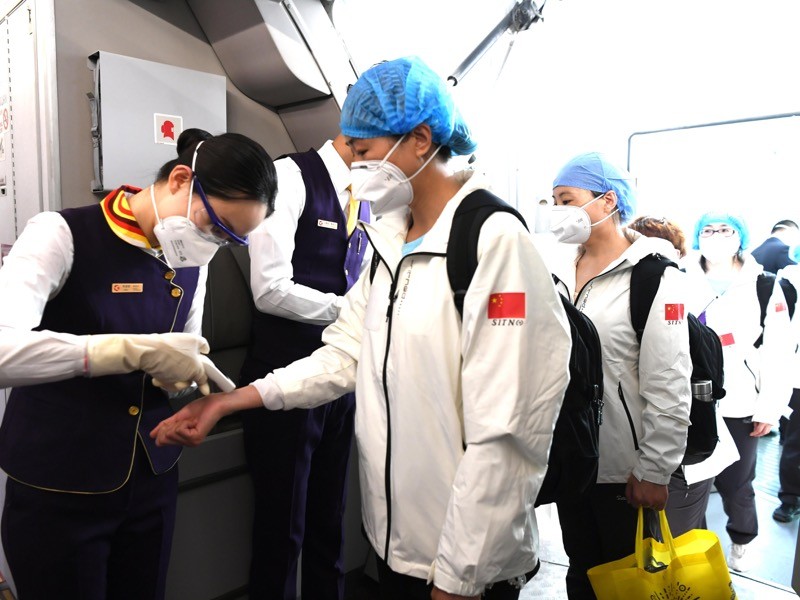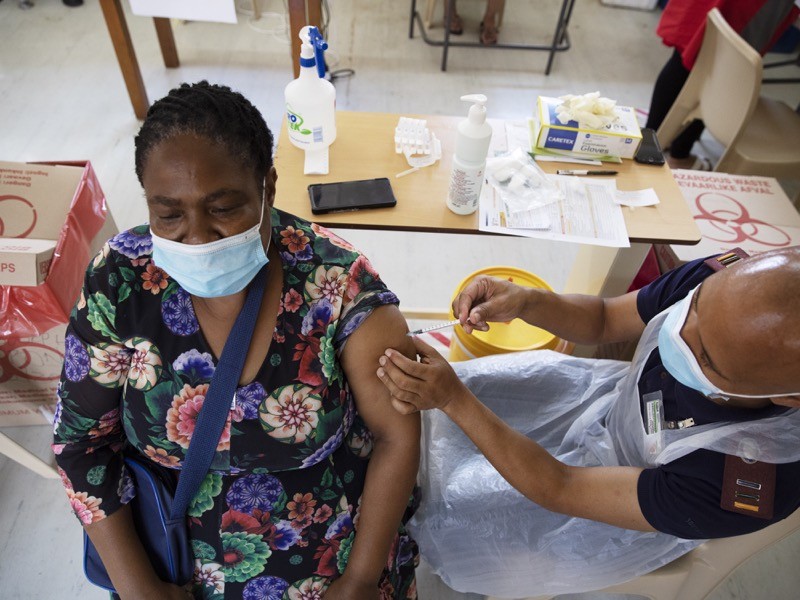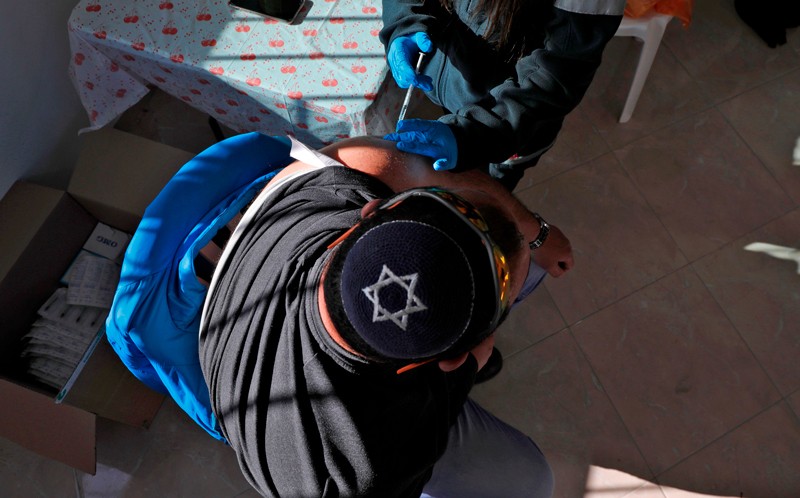Huge database will track COVID spread and immunity
An enormous international database will help epidemiologists to monitor COVID-19 vaccines and coronavirus variants, as well as answer burning questions, such as how rapidly the new variants spread among people.
Unlike the global COVID-19 dashboard maintained by Johns Hopkins University in Baltimore, Maryland, and other trackers that list overall COVID-19 infections and deaths, the new repository at the data-science initiative called Global.health collects an unprecedented amount of anonymized information about individual cases. For each individual, the database includes up to 40 associated variables, such as the date when they first had COVID-19 symptoms and their travel history.
The repository was created by 21 researchers at 7 academic institutions in the United States and Europe, with technical and financial support from Google and the Rockefeller Foundation. So far, the team has collected information from 24 million cases across some 150 countries.
“This is really good,” says Robert Garry, a virologist at Tulane University in New Orleans, Louisiana. “Nothing like this exists, because it’s so hard to do.”
One-shot COVID vaccine gets us authorization
The US Food and Drug Administration (FDA) has granted an emergency-use authorization for a coronavirus vaccine that requires a single inoculation.
The vaccine, made by Johnson & Johnson in New Brunswick, New Jersey, should simplify the logistics of vaccinating people against COVID-19, not only because of its single-dose regimen, but also because it can be stored for up to three months in a refrigerator. Most coronavirus vaccines are given in two doses, and some must be stored at very low temperatures.
Johnson & Johnson’s is the third vaccine against SARS-CoV-2 to be authorized by the FDA. The agency authorized it on 27 February, one day after a panel of external advisers voted unanimously that the benefits of the vaccine outweighed any risks.
The vaccine works by inserting the gene for a coronavirus protein into a virus called an adenovirus, which has been disabled so that it cannot replicate in human cells. When the adenovirus enters cells, the coronavirus gene is expressed, allowing the immune system to mount a defence against it. The approach is similar to the vaccine devised by the University of Oxford, UK, and AstraZeneca in Cambridge, UK, but uses a different adenovirus.
Johnson & Johnson will provide the vaccine on a non-profit basis for emergency pandemic use, and aims to produce 100 million doses in the first half of 2021.
Trial hints that Pfizer vaccine could curb COVID transmission
A leading COVID-19 vaccine is highly effective at preventing SARS-CoV-2 infections, whether they cause symptoms or not — the strongest evidence yet that vaccines could control viral spread.
Susan Hopkins at Public Health England in London and her colleagues tracked the effectiveness of the vaccine made by Pfizer and BioNTech in 23,000 UK health-care workers who were already part of a long-term study of SARS‑CoV-2 immunity (V. J. Hall et al. Preprint at SSRN https://doi.org/fw7v; 2021). Participants were tested regularly for SARS-CoV-2, regardless of their symptoms.
The vaccine was 70% effective at preventing both symptomatic and asymptomatic infections in the period beginning 3 weeks after the first dose; this grew to 85% shortly after a second dose. This finding is the first evidence that Pfizer’s vaccine might block transmission, the researchers say.
Meanwhile, an analysis of more than one million people in Israel suggests that the same vaccine is highly effective at preventing severe COVID-19. Ran Balicer at Clalit Health Services in Tel Aviv and his colleagues matched 596,618 people vaccinated as part of a nationwide campaign with an unvaccinated ‘twin’ of the same age, sex, ethnicity and neighbourhood of residence. The pairs also had a matching number of medical conditions and shared other characteristics (N. Dagan et al. N. Engl. J. Med. https://doi.org/fw7w; 2021).
The researchers found that, 7 days or more after the second shot, Pfizer’s vaccine was 94% effective at preventing COVID‑19 and 92% effective against severe disease. The results were consistent across all age groups, including in people aged 70 and older, and were strikingly close to efficacy estimates from clinical trials, despite being based on jabs administered in less stringently controlled settings and more diverse populations.
The study also covered a period when the emerging variant called B.1.1.7 was circulating widely in Israel, which suggests that the vaccine is effective at preventing COVID‑19 caused by that variant.
"and" - Google News
March 03, 2021 at 04:08PM
https://ift.tt/3qdi49Q
COVID mega-database, single-shot vaccine and Pfizer results - Nature.com
"and" - Google News
https://ift.tt/35sHtDV
https://ift.tt/2ycZSIP
And
Bagikan Berita Ini

















0 Response to "COVID mega-database, single-shot vaccine and Pfizer results - Nature.com"
Post a Comment